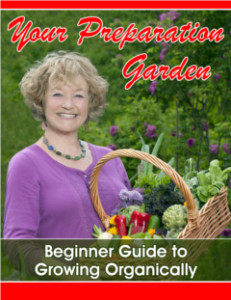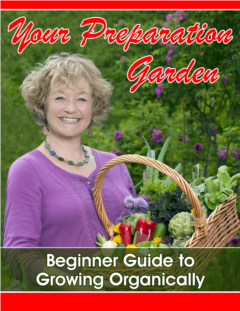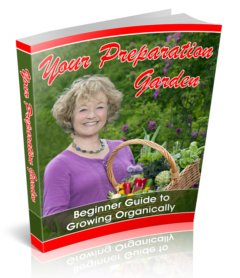 For some people, gardening is a passion. It is a source of great pleasure and a way to unwind and relax. For others, gardening is a necessity and an important way to provide food for their families.
For some people, gardening is a passion. It is a source of great pleasure and a way to unwind and relax. For others, gardening is a necessity and an important way to provide food for their families.
With the rise in food costs and the difficulty of finding good varieties of fresh vegetables and fruits, more and more families are turning to gardening as a way to provide food for their tables. In fact, throughout history during difficult times, people saw the value in growing crops to help supplement their food supply. Even during in times of war, gardening became a way that many people would provide food for their families and communities.
Today, there is an increased concern about our future and dealing with the uncertainties that may impact our future food supply. People are looking for ways to be better prepared for the potential difficulties ahead – and to find solutions to providing an ongoing supply of fresh and healthy vegetables, fruits and berries. Obviously, preparedness is an important consideration as you are planning your garden, and an area we will discuss further in this book.
Gardening is also a wonderful way to supply healthy food for you, your family, and perhaps even your neighbors. When you purchase produce from the local grocer or even farm stand, it really never is the same as providing vegetables that were grown fresh in your own garden. You know exactly what was put in the ground to nurture your crops, and you know the care that you gave to your garden. Nothing tastes better than vegetables you raised with your own two hands.
Many people decide to garden so they can have control over exactly what kind of food they consume without worry of fertilizers or pesticides. Typically, commercially grown produce is cultivated in greenhouses with using pesticides and chemicals to boost their development.
A quick study on these types of artificial applications can be unnerving for anybody. The negative effects of chemical pesticides on the human body and environment can truly take its toll. More and more people are turning to growing organically as a way to decrease the threats of chemical elements that were used in the growing process of many grocery store vegetables and fruits.
You really don’t have to be a health and wellness person to appreciate the benefits of organic gardening. You will appreciate the great taste of your organically grown crops and will certainly feel wonderful knowing that you are providing foods to your family that were grown all naturally without the risks that come with using unhealthy chemical fertilizers and pesticides.
Also… It is much easier than you think. If you’ve been gardening for several years or are simply starting to grow your own food, organic gardening can offer you with assurance and pride in your garden. Beyond the benefits you will get from protecting your body, you will also be protecting the environment for the future generations.
We will check out the benefits of organic gardening along with the best way to begin. We’ll share ideas about mulching, weed control, and all-natural composting. Plus, we’ll give you some concepts on natural pest controls and ways to increase crop yields and make sure your garden flourishes– without chemicals!
Let’s begin our journey into “Your Preparation Garden: Beginners Guide to Growing Organically”!
Attention: If you are a PREPARE Premium Member, you will see the download link below. (You will need to be logged-in to your account in order to see the download link).
Premium Members Download below:
Your Preparation Garden: Guide to Growing Organically
Click the red button to download the PDF file.
[fastmemdownload file=”http://preparemember.s3.amazonaws.com/ebooks/Your Preparation Garden/Your Preparation Garden.pdf” title=”” imgf=”http://www.preparemember.com/wp-content/uploads/2013/04/DownloadNowRed.png”]

